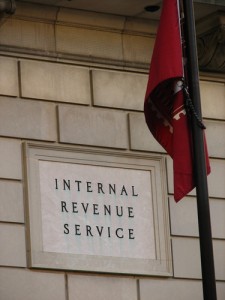
We hear this language all the time in charity circles:
- governance
- accountability
- transparency
- board responsibilities
- conflict of interest
- whistleblower protection
- executive compensation
- document retention
… and other words and phrases in the nonprofit lexicon. What do they mean to the federal agency that reviews public charities when they apply for tax-exempt designation and again every year when most file an information return?
The most comprehensive (read “burdensome”) of the returns, form 990, asks lots of questions about whether policies are in place, but doesn’t (and shouldn’t) provide any detail as to what the expectations are around these arcane concepts.
If only we could agree on what the practices mean.
I found this gem on the IRS website, “Governance and Related Topics – 501(c)(3) Organizations,” that makes it pretty clear what the agency is looking for. (It’s from February 2008, but these definitions don’t change much.) The Internal Revenue Code does not require documentation or detailed policies in these areas.
But–big but–IRS believes, “A charity that has . . .a knowledgeable and committed governing body and management team, and sound management practices is more likely to operate effectively and consistent with tax law requirements.”(page 1)
That explains the Service’s opinion of the relationship between good governance and tax code compliance, and their interest in the former. So what do these things mean?
Good Governance. This is the broad category. It means having in place “policies relating to executive compensation, conflicts of interest, investments, fundraising, documenting governance decisions, document retention and destruction, and whistleblower claims.” (page 3)
Executive Compensation. You pay reasonable compensation for services rendered. Pay is determined by people knowledgeable about compensation practices and financially uninterested in the levels set. (page 3)
Conflicts of Interest. The Service “encourages a charity’s board of directors to adopt and regularly evaluate a written conflict of interest policy that requires directors and staff to act solely in the interests of the charity without regard for personal interests . . .” You set up the policy and monitor compliance. (page 4)
There is considerably more detail at the page references I’ve given you. Read the document and consult your legal counsel. Do not construe this post as legal advice. It isn’t.
Over the next few weeks I’ll take on additional governance topics from this informative IRS paper.
There are expert attorneys much more knowledgeable than me in the legal requirements for running your nonprofit. I suggest you pay attention to Carter Ellis and Gene Takagi. Gene and his colleague Emily Chan will be regular legal contributors to Tony Martignetti Nonprofit Radio starting in July. I’m sure we’ll talk a lot about governance.